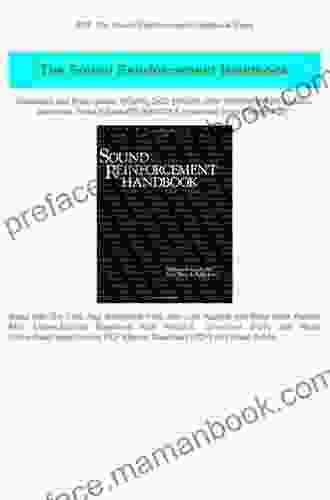The Dynamics of Practice: A Comprehensive Guide to the Science of Deliberate Improvement

4.6 out of 5
| Language | : | English |
| File size | : | 2309 KB |
| Text-to-Speech | : | Enabled |
| Screen Reader | : | Supported |
| Enhanced typesetting | : | Enabled |
| Word Wise | : | Enabled |
| Print length | : | 150 pages |
| Item Weight | : | 3.52 ounces |
| Dimensions | : | 4.88 x 0.33 x 6.85 inches |
The pursuit of excellence in any field requires a relentless commitment to practice. However, not all practice is created equal. Deliberate practice, a systematic and focused approach to skill acquisition, has been shown to be the most effective way to improve performance and achieve mastery.
In this comprehensive guide, we will delve into the science of deliberate practice, exploring its principles, benefits, and essential components. Whether you're an aspiring athlete, musician, artist, or professional in any field, understanding the dynamics of practice will empower you to unlock your potential and reach the highest levels of performance.
The Principles of Deliberate Practice
Deliberate practice is characterized by several key principles:
- Intentionality: Practice sessions are designed with specific goals and objectives in mind.
- Focus: Attention is directed towards the specific skills and techniques that need improvement.
- Effort: Practice is challenging and requires sustained effort, pushing the boundaries of one's abilities.
- Feedback: Regular and specific feedback is sought to identify areas for improvement.
- Iteration: Practice is not a linear process, but rather an iterative cycle of improvement, feedback, and refinement.
Benefits of Deliberate Practice
The benefits of deliberate practice are well-documented and include:
- Improved Skill Acquisition: Deliberate practice accelerates the rate at which new skills are learned and existing skills are refined.
- Enhanced Performance: By focusing on specific areas of improvement, deliberate practice leads to significant gains in performance over time.
- Cognitive Development: Deliberate practice not only improves motor skills but also enhances cognitive functions such as attention, memory, and decision-making.
- Increased Confidence: Regular and successful practice boosts confidence and self-belief, providing a solid foundation for sustained improvement.
- Long-Term Success: Deliberate practice fosters a mindset of continuous learning and improvement, paving the way for long-term success in any field.
Essential Components of Deliberate Practice
To effectively implement deliberate practice, it is crucial to consider the following essential components:
- Goal Setting: Clear and specific goals provide direction and motivation for practice sessions.
- Task Selection: Practice tasks should be challenging but achievable, designed to push the boundaries of one's abilities.
- Feedback: Regular and specific feedback is essential for identifying areas for improvement and fine-tuning practice strategies.
- Focus: Practice should be focused on specific skills and techniques, avoiding distractions and multitasking.
- Effort: Practice sessions should require sustained effort and push the individual to their limits.
- Iteration: Practice is an ongoing cycle of improvement, feedback, and refinement, with adjustments made as needed.
The Role of Mindset
In addition to the practical components of deliberate practice, the right mindset is essential for maximizing its effectiveness.
A growth mindset, which embraces challenges and views setbacks as opportunities for learning, is conducive to deliberate practice. Individuals with a growth mindset are more likely to persevere through difficult practice sessions and seek out feedback that will help them improve.
Conversely, a fixed mindset, which sees ability as fixed and unchangeable, can hinder progress in deliberate practice. Individuals with a fixed mindset may avoid challenging tasks, fear failure, and be hesitant to seek feedback.
Overcoming Barriers to Deliberate Practice
While deliberate practice offers immense benefits, there are certain barriers that can hinder its implementation:
- Lack of Motivation: Staying motivated during challenging practice sessions can be difficult.
- Time Constraints: Finding the time to engage in regular deliberate practice can be a challenge.
- Fear of Failure: Some individuals may avoid deliberate practice due to fear of failure or negative feedback.
- Lack of Support: Without the support of coaches, mentors, or peers, individuals may struggle to maintain a consistent practice regimen.
- Lack of Awareness: Many individuals may not be aware of the principles and benefits of deliberate practice.
To overcome these barriers, it is important to set realistic goals, find a supportive environment, and develop a mindset that embraces challenges and values the learning process.
Deliberate practice is a powerful tool that can unlock the potential for excellence in any field. By understanding its principles, benefits, and essential components, you can harness the power of focused repetition to improve your skills, enhance your performance, and achieve your goals.
Remember, the journey of deliberate practice requires commitment, perseverance, and a willingness to embrace challenges. However, the rewards are immense. By embracing the dynamics of practice, you can elevate your performance to new heights and reach the pinnacle of your abilities.
4.6 out of 5
| Language | : | English |
| File size | : | 2309 KB |
| Text-to-Speech | : | Enabled |
| Screen Reader | : | Supported |
| Enhanced typesetting | : | Enabled |
| Word Wise | : | Enabled |
| Print length | : | 150 pages |
| Item Weight | : | 3.52 ounces |
| Dimensions | : | 4.88 x 0.33 x 6.85 inches |
Do you want to contribute by writing guest posts on this blog?
Please contact us and send us a resume of previous articles that you have written.
 Top Book
Top Book Novel
Novel Fiction
Fiction Nonfiction
Nonfiction Literature
Literature Paperback
Paperback Hardcover
Hardcover E-book
E-book Audiobook
Audiobook Bestseller
Bestseller Classic
Classic Mystery
Mystery Thriller
Thriller Romance
Romance Fantasy
Fantasy Science Fiction
Science Fiction Biography
Biography Memoir
Memoir Autobiography
Autobiography Poetry
Poetry Drama
Drama Historical Fiction
Historical Fiction Self-help
Self-help Young Adult
Young Adult Childrens Books
Childrens Books Graphic Novel
Graphic Novel Anthology
Anthology Series
Series Encyclopedia
Encyclopedia Reference
Reference Guidebook
Guidebook Textbook
Textbook Workbook
Workbook Journal
Journal Diary
Diary Manuscript
Manuscript Folio
Folio Pulp Fiction
Pulp Fiction Short Stories
Short Stories Fairy Tales
Fairy Tales Fables
Fables Mythology
Mythology Philosophy
Philosophy Religion
Religion Spirituality
Spirituality Essays
Essays Critique
Critique Commentary
Commentary Glossary
Glossary Bibliography
Bibliography Index
Index Table of Contents
Table of Contents Preface
Preface Introduction
Introduction Foreword
Foreword Afterword
Afterword Appendices
Appendices Annotations
Annotations Footnotes
Footnotes Epilogue
Epilogue Prologue
Prologue Alessia Zorloni
Alessia Zorloni Sharon Connell
Sharon Connell Kimberly Morrow Leong
Kimberly Morrow Leong Nia Sharland
Nia Sharland James Rebanks
James Rebanks Becky Keene
Becky Keene Annie Martin
Annie Martin Jocelyn Mcdaniel
Jocelyn Mcdaniel Clare Chase
Clare Chase Richard Arum
Richard Arum Ryan S Walters
Ryan S Walters Bruce Carlley
Bruce Carlley Edward J Daly
Edward J Daly Shana Frost
Shana Frost Deborah Coates
Deborah Coates Janice Gallen
Janice Gallen J J Zerr
J J Zerr Michelle Borel
Michelle Borel Charles Martindale
Charles Martindale Anuschka Rees
Anuschka Rees
Light bulbAdvertise smarter! Our strategic ad space ensures maximum exposure. Reserve your spot today!

 Connor MitchellIt Isn't a Ghost If It Lives in Your Chest: Exploring the Unnatural Causes of...
Connor MitchellIt Isn't a Ghost If It Lives in Your Chest: Exploring the Unnatural Causes of...
 Barry BryantEmbracing a Second Chance at Life: A Transformative Journey of Resilience and...
Barry BryantEmbracing a Second Chance at Life: A Transformative Journey of Resilience and... Douglas PowellFollow ·3.1k
Douglas PowellFollow ·3.1k Wayne CarterFollow ·4.2k
Wayne CarterFollow ·4.2k Josh CarterFollow ·19.4k
Josh CarterFollow ·19.4k Ethan MitchellFollow ·19.9k
Ethan MitchellFollow ·19.9k Alfred RossFollow ·15.6k
Alfred RossFollow ·15.6k Robert Louis StevensonFollow ·9.6k
Robert Louis StevensonFollow ·9.6k Will WardFollow ·15.1k
Will WardFollow ·15.1k Walter SimmonsFollow ·10.4k
Walter SimmonsFollow ·10.4k

 Vincent Mitchell
Vincent MitchellUnveiling the Enchanting Tale of Plant Reproduction: A...
Plants, the silent yet vibrant...

 Sam Carter
Sam CarterDelve into the Enigmatic World of "Relative Murder: A...
In the realm of mystery and suspense, the...

 Richard Simmons
Richard SimmonsThe Sound Reinforcement Handbook: A Comprehensive Guide...
In the realm of live sound engineering, The...

 Leo Tolstoy
Leo TolstoyEnter the New Era of Cyberwar: Unmasking the Kremlin's...
`` Prologue: The Digital...

 Brenton Cox
Brenton CoxFirst Lessons Ukulele Bridget Baker: A Comprehensive...
Embarking on a musical journey with the...
4.6 out of 5
| Language | : | English |
| File size | : | 2309 KB |
| Text-to-Speech | : | Enabled |
| Screen Reader | : | Supported |
| Enhanced typesetting | : | Enabled |
| Word Wise | : | Enabled |
| Print length | : | 150 pages |
| Item Weight | : | 3.52 ounces |
| Dimensions | : | 4.88 x 0.33 x 6.85 inches |










